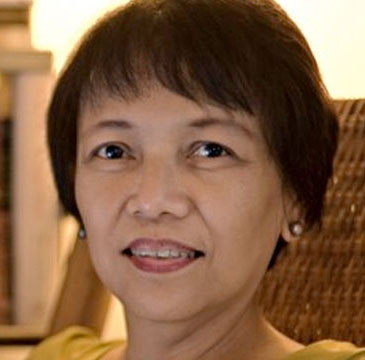SUMMARY
This is AI generated summarization, which may have errors. For context, always refer to the full article.
 During the questioning and detention of the Al Jazeera crew that covered the standoff between armed men claiming to be members of the Royal Sulu Army and the Malaysian police last week, one thing stood out. Jamela Alindogan, the producer, who is a Filipino and based in Manila, was accused several times by the Malaysian authorities of working for the Sultanate’s army. This, despite Alindogan’s ID which “clearly identified her as a member of the Al Jazeera English Network,” according to the official statement of the Al Jazeera.
During the questioning and detention of the Al Jazeera crew that covered the standoff between armed men claiming to be members of the Royal Sulu Army and the Malaysian police last week, one thing stood out. Jamela Alindogan, the producer, who is a Filipino and based in Manila, was accused several times by the Malaysian authorities of working for the Sultanate’s army. This, despite Alindogan’s ID which “clearly identified her as a member of the Al Jazeera English Network,” according to the official statement of the Al Jazeera.
Alindogan was with Steve Chao, senior Asia correspondent, and cameraperson Mark Giddens. They were on a boat near a coastal village in Sabah when the Malaysian police ordered them to stop and took them to a local police station.
At one point, the interrogators—“who were not in uniform and declined to provide their full names or rank” but were “at all times polite”—asked for Alindogan’s cellphone. She refused to hand it over.
After about 6 hours, the crew was released without charges.
I was struck by the way the Malaysian authorities treated Alindogan because, more than a decade ago, a friend and I received a somewhat similar treatment from the Malaysian immigration officers, but more benign.
Could it be that things have not really changed despite an improvement in Philippine-Malaysia relations in the post-Marcos years?
Sabah is no longer the haven and training ground for rebels belonging to the Moro National Liberation Front. President Fidel Ramos was big on EAGA or the East Asean Growth Area, which gathered together parts of Malaysia, Indonesia, Brunei and Mindanao to promote trade and tourism.
Under President Gloria Arroyo, Kuala Lumpur started to broker talks between the government and the Moro Islamic Liberation Front. PNoy has continued this.
Boat to Sandakan
In the late 1990s, when Criselda Yabes and I were doing research for our book on the EAGA, we took an ocean liner from Zamboanga, actually a refurbished Russian crew ship, and it plodded slowly through the Sulu Sea, taking us almost 20 hours to reach Sandakan on the east coast of Sabah, the second largest city in the island.
Transport from Zamboanga to Sandakan has since become better. At one time, a fast ferry plied the route for 6 hours.
While we have fond memories of this trip, what hit us was the suspicion with which some of the Sabah residents viewed the Filipinos. At the time, thousands of Filipinos living there were illegal immigrants, mostly those who fled from the Muslim rebellion in Mindanao. Today, the number of undocumented workers has gone down after Malaysia’s series of deportations.
It was common then to read newspaper headlines in Sabah on Filipinos jailed for illegal entry and caught with fake IC or identity cards.
Here’s Yabes’s account from our book, Jalan-Jalan: A Journey through EAGA: “…letters to the editor portray Filipinos a detestable breed who smuggle in illegal goods and destroy their corals by using illegal methods of fishing, and who disregard basic laws. An unidentified citizen wrote a scathing commentary: ‘…the feeling is overwhelmingly strong—I totally detest the presence of illegal immigrants in Sabah. They are a menace to society.’”
When we arrived, we felt some discrimination, especially because we travelled by boat. Malaysian immigration officers were stern and rude. They poked at our bags and closely examined my bottles of vitamin tablets as if they were objects from outer space. After this, we went through another round of inspection at the gate, as we were leaving the pier.
At the time, visas were still required and we were given a 2-week visa.
Tourist destination
Fast forward. A few years ago, I returned to Sabah for an R & R, this time by plane, and landed in Kota Kinabalu or KK, its capital. Our experience with the immigration was hassle-free. This was a sign, I told myself, that things have normalized between our neighbor and us.
Today, Sabah is a tourist destination as KK is easily accessible via budget flights from Manila. The island is making a name in the world of ecotourism. They’re huge on nature conservation: they provide sanctuary to endangered turtle eggs, orang-utan, and other wildlife.
There, you can commune with nature at the Kinabalu Park, hike on the trails, and spend a quiet night at one of the cottages. The park is nestled at the foot of Mt. Kinabalu which is a treasure trove of green life. It is host to more than half of the world’s flowering plants.
I enjoyed KK and its environs.
But it seems that the change that I experienced is only on the surface. Suspicion and distrust toward Filipinos, to a certain extent, linger. – Rappler.com
Click the links below for more opinion pieces in Thought Leaders:
Add a comment
How does this make you feel?
There are no comments yet. Add your comment to start the conversation.